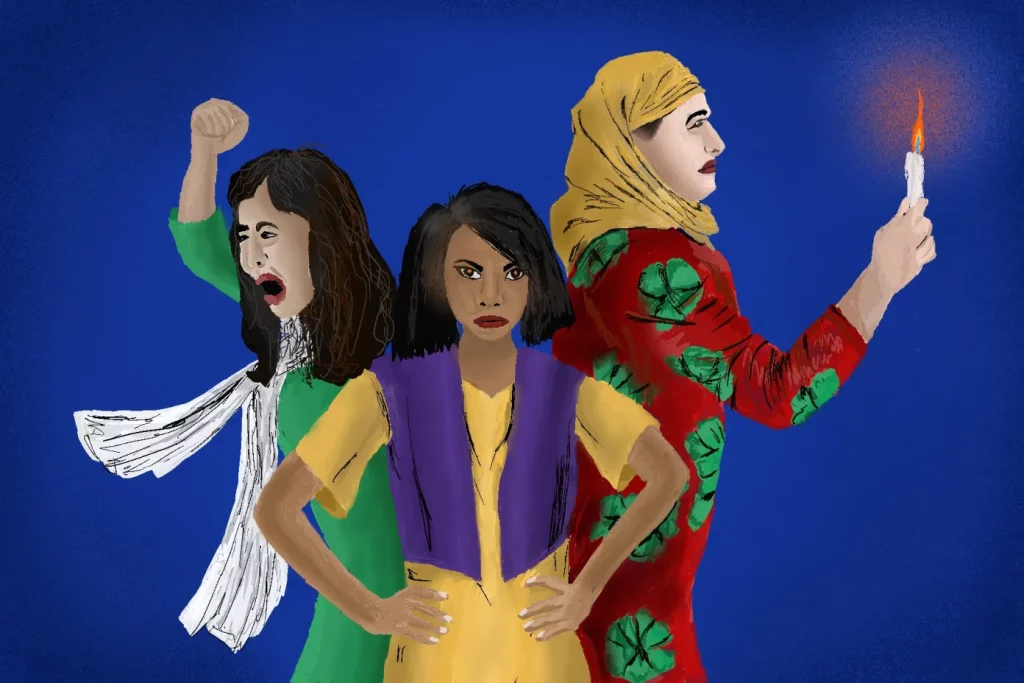‘The sky is full of mysteries, with the twinkling stars and the beautiful moon. But scientific investigation has revealed that stars do not twinkle, nor does the moon look beautiful.’ Thus begins the report by the commission led by Justice K. Hema, appointed by the government of Kerala to study the issues women face in Mollywood. The commission was formed in the wake of the sexual assault on a Malayalam film actress in 2017.
The Hema Commission report has made a shocking revelation about sexual harassment, the casting couch, and the denial of basic human rights for women working in Mollywood.
The Hema Commission report has made a shocking revelation about sexual harassment, the casting couch, and the denial of basic human rights for women working in Mollywood. It discloses that women in the industry were often denied basic facilities like access to the toilet and facilities to change their clothes and sanitary pads.
Sexual harassment in Mollywood as revealed by the Hema Commission report
The Hema commission has documented multiple instances of sexual harassment in the Malayalam film industry. The report says that vulgar language has been used to insult women working in the industry, and there have been pornographic messages and pictures sent to demoralise them.
In one instance, an actress faced sexual assault from a colleague and was then forced to perform a hugging scene with the same person the next day. Citing technical and safety issues, the government has not disclosed the names of the perpetrators.
The Hema Commission report identifies sexual exploitation as one of the gravest forms of oppression faced by women in the film industry. It accuses the industry’s ‘power group‘ of demanding sex from women seeking roles in cinema. According to the report, terms like “compromise” and “adjustments” are very familiar to women in this field.
‘Many in the industry are made to believe that all women in the industry get into or are retained only because they have sex with men in the industry,’ the report states. It accuses certain men of fostering this damaging perception to coerce newcomers into sexual compliance. Shockingly, the report also reveals cases where some mothers are found complicit, believing there is nothing wrong with the practice.
The Hema Commission report extensively covers the ‘casting couch‘ in the industry and accuses some men of knocking on their doors at night. In one instance, the report describes a victim feeling that the door was about to collapse because of the repeated banging on the door.
The Hema Commission report extensively covers the ‘casting couch‘ in the industry and accuses some men of knocking on their doors at night.
Junior artists bear the brunt of these deviant norms in the industry. The report includes comments from a junior artist coordinator, revealing that a mixed WhatsApp group for junior artists has even led to flesh trade.
Inhumane treatment in Mollywood, says Hema Commission report
The Hema commission documented multiple instances of women being denied basic human rights on film sets. It accused the industry of not providing women access to toilets and facilities for changing their clothes. ‘Almost all the women examined by the commission stated that there is no toilet facility or changing room on the set,‘ says the report. Women were forced to go into the forest and use the shade of bush trees to urinate or change their clothes.
According to witnesses documented in the report, many women avoid drinking water on set to prevent the need to use the toilet. The commission also found that many women suffer from urinary infections and other physical ailments. Many women objected to the idea of having an additional caravan for changing clothes or meeting basic needs fearing the hidden cameras that might have been installed in the caravan.

The struggle becomes unbearable for women during their periods. They can hardly find any space to change their sanitary pads or access water. There was an instance where a junior artist was not allowed to go to the toilet because it took ten minutes to get to a convenient place. Junior artists don’t dare to use the toilets in the caravan due to the perception that it is reserved for the hero and heroine.
Rebellious women banned from cinema
Women who raise their voices against exploitation are often banned from films or silenced under the threat of being barred from working in cinema. The Hema Commission report accuses men in the industry of aligning with the ‘power group‘ to cancel those who speak out against exploitation. In many cases, the threats extend to close family members as well.
Referring to this collective ban, the report states, ‘The Malayalam film industry is under the control/clutches of certain producers, directors, and actors—all male. They control the Malayalam film industry and dominate others working in cinema.’ The Hema Commission report found that these men were so powerful that they could manipulate the Internal Complaints Committee (ICC) authorities if someone raised a complaint against them. The Hema commission also found that these ‘powerful‘ men also received confidential information shared by victims in front of the ICC, consequently, many of the victims were barred from the films.
The report also notes that many prominent actors have been banned based on the whims and caprices of those in the ‘power group‘ of the industry.
The report also notes that many prominent actors have been banned based on the whims and caprices of those in the ‘power group‘ of the industry. Often, it is trivial matters that lead to these illegal bans driven by ego. Women who ask for increments also face bans.
The report mentions that members of the Women in Cinema Collective (WCC) have faced a blanket ban. It quotes an actor saying, ‘No person will have the same prominence in film always. As days pass by, the prominence of the actress will be reduced, and this is very common. Members of WCC have to accept this reality.’
Remedial measures
Along with exposing the distressing gender discrimination and abuse in the industry, the commission also proposed several remedial measures. The most highlighted suggestion is a mandatory certificate training program on gender justice and gender awareness. According to the commission, no individual should be permitted to work in the industry without this certification, and every film must obtain a gender justice certificate to ensure it does not perpetuate harmful stereotypes or discriminatory practices.

The Hema commission also calls for a blanket ban on alcohol on film sets, citing multiple instances of verbal and physical assaults on women under the influence of alcohol.
The commission has looked into the remuneration disparity between genders and called for an adequate, direct and contract-based remuneration system for junior artists as well. The commission also suggested the establishment of a welfare fund for women in cinema with partial investment from the government.
What next?
Although the report was submitted back in 2019, the Kerala government did not make it public until the court ordered its publication earlier this month. The published copy does not contain the names of any individuals, and multiple pages have been withheld, allegedly for the safety of the victims.
Despite some of the revelations involving cognisable offences, the government has not indicated any plans to take action on it. On August 22, the court instructed the government to submit the entire report and stated, ‘If action is not taken, the Hema Commission was formed in vain.’





When would it be possible for the names of the ‘power group’ and other offenders to be made public? Maybe there would be some impact if women just refused to see films that featured these people, or refused to attend their concerts or their plays – basically boycotted them in every way. Surely half the population not patronising them should have some lasting effect?